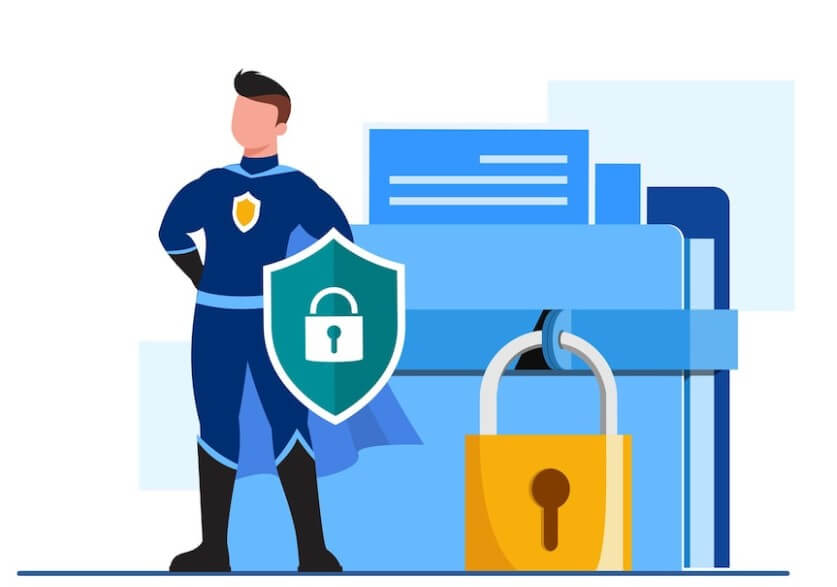
How to Safeguard your Invention?
Introduction:
Competition and competitors are inevitable for everyone. For technology-based industry which is booming at a rapid pace, the competition is especially fierce. With such competition, comes worry and the biggest worry of every company or an inventor who has made new invention is whether their idea is protected from competitors, and would a patent stop their invention from being stolen? And this concern would only subside if one knew how to protect their inventions in appropriate way. To get an edge over your competitors, you need to protect your inventions, ideas, and solutions.
In this article, we would discuss what patents are, how to apply for patent, and what protections it offers. Let’s get started.
First things first, what do you understand by the word ‘Patent’?
A patent is a form of IP protection granted by the government to an inventor or their assignee for a limited period of time. The patent is provided in exchange for a full disclosure of the invention. Patent grants the inventor the right to exclude others from making, using, selling, or even importing the invention. It helps you to protect your invention from your competitors and ensure that your invention or idea is not being copied. If anyone tries to steal your innovation/idea you can always opt for legal proceedings. This deters your competitors from stealing your invention and that’s how patents help you be stress-free.
Not sure what can be patented? Here's a quick overview:
Basically, anything that is new, useful and non-obvious can be patented. This includes inventions, ideas, processes and solutions. As long as you can prove that you came up with it first, you can patent it and stop others from using it or stealing it.
Mission: Applying for Patent
Imagine you have created an innovative product that you are sure will take the world by storm. Congratulations! But before you start making plans to become the next Steve Jobs, you need to protect your invention from your competitors. How? Patent it!
Patenting is indeed perceived as a complex process, but nothing which cannot be handled by expert professionals like Photon Legal’s team. It involves understanding your invention and reflecting it on paper that expresses what is unique in your invention. Once, this is done you can get it filed with various formalities in countries of choice, and protect it.
Benefits of Patenting an Invention:
When you come up with a brilliant invention you expect it to take your business to the next level. But before you can start reaping the benefits, you need to protect it from your competitors and you should also be aware of the advantages this protection can bring to your invention.
There are ‘n’ number of advantages of patenting your invention:
- For starters, it gives you exclusive rights to the technology for a set period of time of 20 years.
- This means that no one else can use it without your permission.
- It also makes it easier to license or sell your invention to other companies, as they know that it's protected by law.
- It gives you an edge over your competitors and can also impress your clients when you reveal that your technology or invention is patented.
- Most importantly, a patented product or technology can help you get investments, and fundings faster with enhanced credibility.
Flip Side of not protecting Invention:
You spend years of turmoil in developing and perfecting your invention only to see that someone else beat you to it and is minting money out of your idea. Obviously, you do not want to be on the other side, where you see your idea or innovation getting patented by some other company or worse your competitor. If you don’t strike when the iron is hot, you will lose out and will be left with “I wish I would have patented my innovation.” So the very first disadvantage is that there's no guarantee that someone else won't patent it first. This could lead to a situation where you spend years working on your invention, only to watch someone else market it and encash benefits.
Another disadvantage is that without a patent, you can’t really stop someone from copying your invention. They may not be able to make it exactly the same, but they could still produce a product that’s very similar and likely to cause confusion in the market.
So, while patenting your invention has some costs associated with it, it’s important to weigh up these disadvantages and decide if the benefits outweigh them.
How long can you stop your competitors?
If you're not familiar with the number of years a patent can be granted, it is for a period of 20 years. This means that your competitors cannot use your patented technology for 20 long years without your permission, which can give you a significant edge in the market.
However, it's important to note that patents are only effective if they're properly enforced. In other words, you need to stay alert, and take legal action against anyone who attempts to copy your invention without permission. In order to identify such illegitimate use of your patent, you first need to be vigilant in your surveillance and brand protection.
Earning through your Patent
If you're not interested in manufacturing and selling your invention outright, you can license it to a company that is. This is a great way to make some money off your invention without doing all the work yourself. You can also patent your invention to prevent others from using it without your permission. This will give you some legal protection and empower you to sue anyone who tries to steal your invention.
Different ways to commercialize your inventions are:
- You can sell your ownership of the patent with a one-time compensation
- You can license your patent to one or more than one licensee who would manufacture the product for you
- You can also self-manufacture your patent and outsource it where your product can be marketed and commercialized
Own Essential Patents and lead market!
To become a market leader in your field, you need to have essential patents in the technology. This will give you a competitive edge and keep others from using your ideas or solutions. You can achieve this by patenting your invention. There are several landmark cases where it has been proven that protecting your invention or technology has helped big companies win patent infringement cases.
One such case is of Bajaj Auto Limited vs TVS Motor Company Limited JT 2009 (12) SC 103, where the case involved unauthorized use and application of the patented Digital Twin Spark Ignition (DTSI) Technology by TVS Motor. Bajaj Auto was granted a patent for the above technology. Therefore, Bajaj Auto won the case because it had secured its innovation with patent and has been using it for years. This is a classic example where it shows why one should protect your inventions and patent your technology so that it can protect your technology from getting copied in the later stages.
Conclusion
When it comes to safeguarding your invention from your competitors, patenting is the best way to do so. With a patent, you will have exclusive rights to use, manufacture, and sell your invention. So there you have it! By following these tips, you can safeguard your invention from your competitors and protect your hard work. Keep in mind that it's important to start protecting your intellectual property as soon as possible, as the process can be lengthy and complex. What are you waiting for? Don't hesitate and reach out to us through LinkedIn or our website www.photonlegal.com to get your innovations protected as soon as possible. Keep inventing and innovating because competition never stops and neither should you.
If you enjoyed reading this article, you might also like the following articles:
- Combatting Brand Abuse: Why Brand Protection Is Crucial? https://photonlegal.com/blog/combatting-brand-abuse-why-brand-protection-is-crucial/
- ALEXA- avoid Patent Infringement! https://photonlegal.com/blogs/alexa-avoid-patent-infringement/
On this page
Relevant reading for smart FMCG and tech brands.
View All

Are you trying to figure out why investors value patents? Intellectual property is undoubtedly...

Are you trying to figure out why investors value patents? Intellectual property is undoubtedly...

Are you trying to figure out why investors value patents? Intellectual property is undoubtedly...
You could spend the next 3 years following up on patent applications.
Want to exit, scale, or sleep better? Start with faster IP protection.
Let’s talk before someone else owns what you’ve built.
Is your IP at risk because of delayed patents?
Or you could get Pulse by Photon Legal. Our interactive platform helps take you from idea to patent in <11 months.
.svg)
.svg)
.svg)
.svg)
.svg)














